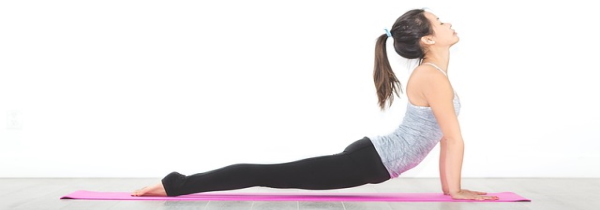Meditation is a practice that has been around for centuries and is experiencing a growth in popularity today. Meditation is primarily used as a tool to improve focus, reduce stress, and increase mindfulness. And although there are many different types of meditation available, they all have the common goal of focusing your attention on the present moment.
If you are new to meditation, you may be wondering how often and for how long you should meditate. Unfortunately, there is no one-size-fits-all answer to this question. The best frequency and duration will vary from person to person because of the differences in our lifestyles and the different goals we may have. However, there are some general guidelines that everyone seems to agree on that can help you find the answers that best suit you.
How Often Should You Meditate?
 Most experts recommend meditating for at least 10 minutes per day. However, if you are just starting out, you may want to start with shorter sessions, such as 5 or even 3 minutes. And once you become comfortable with your practice, you can gradually increase the length of your sessions to 20 or 30 minutes.
Most experts recommend meditating for at least 10 minutes per day. However, if you are just starting out, you may want to start with shorter sessions, such as 5 or even 3 minutes. And once you become comfortable with your practice, you can gradually increase the length of your sessions to 20 or 30 minutes.
More important than the length of your session, is the length of time you enter into a deep meditative state. You may sit in meditation for 5 minutes and achieve a deep state of relaxation for only 2 of those minutes… (this is great!) And if you did this twice a day, you will accumulate the benefits that come with achieving a deep meditative state for 4 minutes each day.
If you compare this to another person who is meditating once a day for 20 minutes, and only achieving a deep meditative state for only 3 of those minutes… you would be better off doing 2 shorter sessions each day.
Some people find it easy to ‘quickly’ relax, while others require a longer time to settle their body and mind down so they can achieve a deeply relaxed state… you may need to experiment a bit with the frequency and length of your sessions to find what works best for you.
However, one thing is universally agreed upon…
… the more you meditate, the more benefits you will experience. Therefore, try to meditate at least once a day, but if you can only meditate a few times a week, that’s still going to be better than doing nothing.
If you miss a day, it’s important that you don’t view it as a ‘negative.’ Instead, it’s better to just pick up the next day without judging yourself… it goes without saying that sometimes life throws us a ‘curveball’ and we will be knocked out of our regular routine, even if we don’t want to be. Just beginning again when it is possible will help you to establish meditation as a regular habit.
How Long Should You Meditate?
The duration of your meditation sessions will also vary depending on your individual needs and goals. If you are looking for stress relief, you may want to meditate for shorter periods of time, such as 5 or 10 minutes, and do it more frequently.
 If you are looking for deeper relaxation or to improve your focus, you will want to increase the length of your sessions. In this case, 20 or 30 minutes will better help you achieve your goals.
If you are looking for deeper relaxation or to improve your focus, you will want to increase the length of your sessions. In this case, 20 or 30 minutes will better help you achieve your goals.
One comment that is often overlooked by those ‘teaching how to meditate’ is that it is important to listen to your body and not push yourself too hard. If you find that you become emotional, bored, experiencing pain or other unusual sensations, lose awareness, or get a headache, during your meditation, you can always end your session early.
However, none of the above are reasons to stop meditating. Instead, they are normal things that arise on occasion for most people who embark on personal growth and development. These ‘issues’ are just things that lead us on a journey of greater self-discovery… they become our intimate ‘teacher’ to help us learn more about ourselves.
What Is The Best Time To Meditate?
The best time to meditate is the time that works best for you. I know people who, without fail, get up at 3:30 am to meditate. They do so because this is the time of the day when it is quietest. And therefore, there is less to distract them… and it is easier for them to achieve a state beyond their body and mind.
However, this is not something that all of us can do or choose to do. Some people prefer to meditate first thing in the morning, while others prefer to meditate for a few minutes while at their desk during the day, and others at night before going to bed.
There is no right or wrong answer. By experimenting, you will find a time that works for you and your schedule.
How to Get Started With an Easy Meditation
If you are new to meditation, here are a few tips to help you get started:
 Find a quiet place where you won’t be disturbed.
Find a quiet place where you won’t be disturbed.- Make yourself comfortable. You can either sit on the floor, in a chair, or lie down.
- Close your eyes
and focus on your breath. - If your mind wanders, gently bring it back to your breath.
- Don’t judge yourself if your mind wanders. Just keep bringing it back to your breath.
- Start with short sessions and gradually increase the length of your meditations as you get more comfortable.
It’s that simple… however, many people believe that they can’t meditate, and this is simply not true. This false belief is often based on a misunderstanding of what they believe meditation to be. It’s about training your mind to focus on the things you want it to focus on… and if you can keep returning your mind to your ‘anchor’ (point of attention) then you are meditating!
Also important to note is that there are many different types of meditation, so if one is not working for you, you may want to experiment until you find another one that works better for you. Briefly, some popular types of meditation are:
- Mindfulness meditation: This type of meditation involves focusing your attention on the present moment without judgment.
- Transcendental meditation: This type of meditation involves repeating a mantra silently to yourself.
- Guided meditation: This type of meditation involves listening to a teacher or a guided meditation recording.
No matter what type of meditation you choose, the most important thing is to be consistent with your practice. Because, the more you meditate, the more benefits you will experience.
Regular Meditation Practice Has Many Benefits
Meditation has been shown to have a number of benefits, including:
- Reducing stress and anxiety

- Improving focus and concentration
- Increasing self-awareness
- Enhancing creativity and problem-solving skills
- Improving sleep quality
- Increasing relaxation and calmness
- Reducing pain and inflammation
- Improving mental and emotional health
- Increasing your lifespan
Final Thoughts
 If you are looking for a way to improve your overall well-being, meditation is possibly the best tool available. It is a simple and effective practice that can be done by anyone, anywhere, and at any time.
If you are looking for a way to improve your overall well-being, meditation is possibly the best tool available. It is a simple and effective practice that can be done by anyone, anywhere, and at any time.
So what are you waiting for? Are you going to start meditating today?
If you would like some help achieving your goals, you could check out some of the great apps from the team at Headspace.




